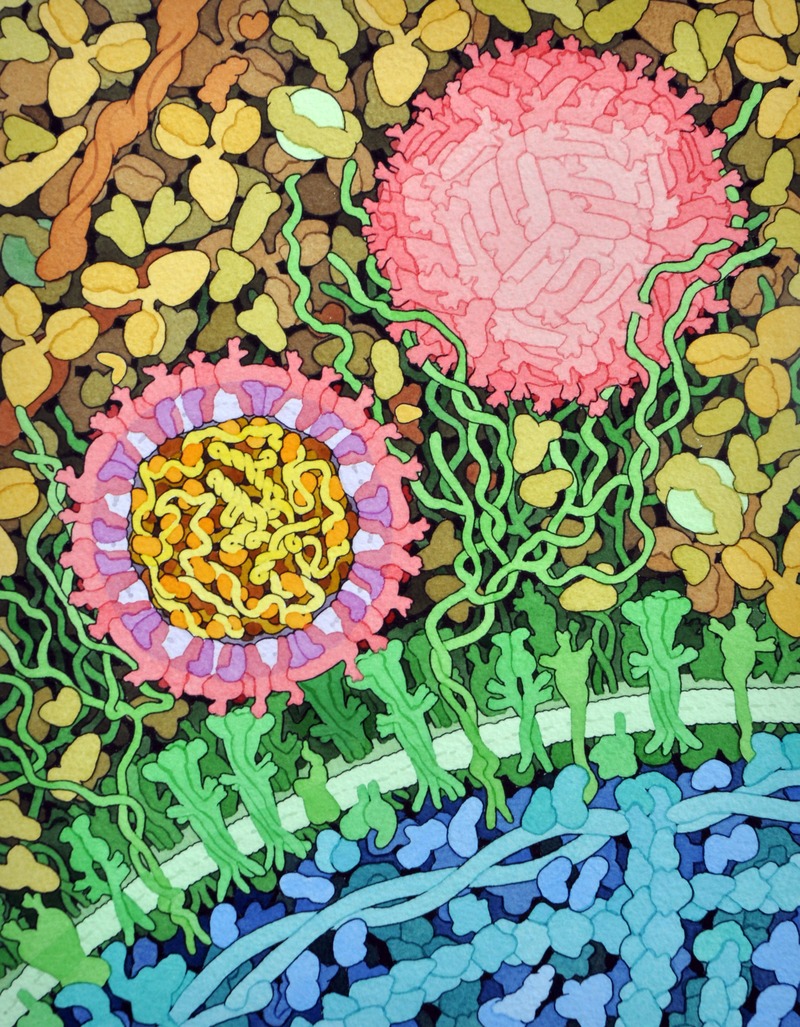Scientists find antimalarial drug may be repurposed to treat Zika

Redistributed by neucrad health February 7, 2019
Highlight
By conducting high throughput virtual screening of a library of drugs approved by America’s Food and Drugs Authority, researchers found hydroxychloroquine (HCQ), antimalarial drug, as one of the possible candidates for treatment of Zika virus.
In their search for possible treatment for Zika virus infection, a team of Indian researchers has identified a viral protein that can be targeted by an already available antimalarial drug, hydroxychloroquine (HCQ).
Researchers hit upon the protein when they conducted a high throughput virtual screening of a library of drugs approved by America’s Food and Drugs Authority. Out of 1861 compounds in the library, five including HCQ appeared to be possible candidates for treatment of Zika virus. It has also been found that HCQ limits the Zika virus transmission from mother to foetus.
The study was conducted by researchers at the Indian Institute of Technology, Mandi, Alagappa University in Karaikudi, Tamil Nadu and Washington University at St. Louis.

” Zika gets transmitted by bite of an infected mosquito from the Aedes genus, mainly Aedes aegypti. This is the same mosquito that transmits dengue, chikungunya and yellow fever. ”
“Hopefully we are close to finding a potential drug against Zika. We have successfully identified the target protein on which HCQ acts. Since it is an FDA approved drug our journey for validation may be less tedious and we can go for preclinical trials faster,” said Dr Rajanish Giri, researcher at IIT Mandi.
“Repurposing approved drugs can be an efficient method to identify drug compounds, which may be capable of activating or inhibiting new targets. This approach has some advantageous features, including reduced development time and expense and improved safety” he added.
Zika gets transmitted by bite of an infected mosquito from the Aedes genus, mainly Aedes aegypti. This is the same mosquito that transmits dengue, chikungunya and yellow fever.
This virus infection during pregnancy is a cause of microcephaly (reduced head size) and other congenital abnormalities in developing foetus and newborns. Zika infection in pregnancy also results in pregnancy like foetal loss, stillbirth and preterm birth. Further, it is known to be associated with certain neurological disorders like Guillain-Barré syndrome in adults and cause problems like neuropathy and myelitis particularly in older children and adults. The rapid spread of this virus in recent years has led to a surge in efforts to find an effective therapeutic intervention.
The team of researchers include Dr.Rajanish Giri from IIT Mandi, Prof. Indira U. Mysorekar from Washington University and Prof. Sanjeev Kumar Singh from Alagappa University. A paper on the work has been recently been published in journal ACS Omega.
News and Image resource: India Science Wire (Written by Jyoti Singh New Delhi, Tuesday, February 05, 2019)
Featured image description: It is for illustration purpose only. Space-fill drawing of the outside of one Zika virus particle, and a cross-section through another as it interacts with a cell. The two main proteins of the viral envelope, the envelope proteins and membrane proteins, are shown in red and purple respectively. The lipid membrane of the envelope is shown in light lavender.The capsid proteins, in orange, are shown interacting with the RNA genome, in yellow, at the center of the virus. The cell-surface receptor proteins are in green, the cytoskeleton in blue, and blood plasma proteins in gold. Drawn by David Goodsell. CC BY 4.0








